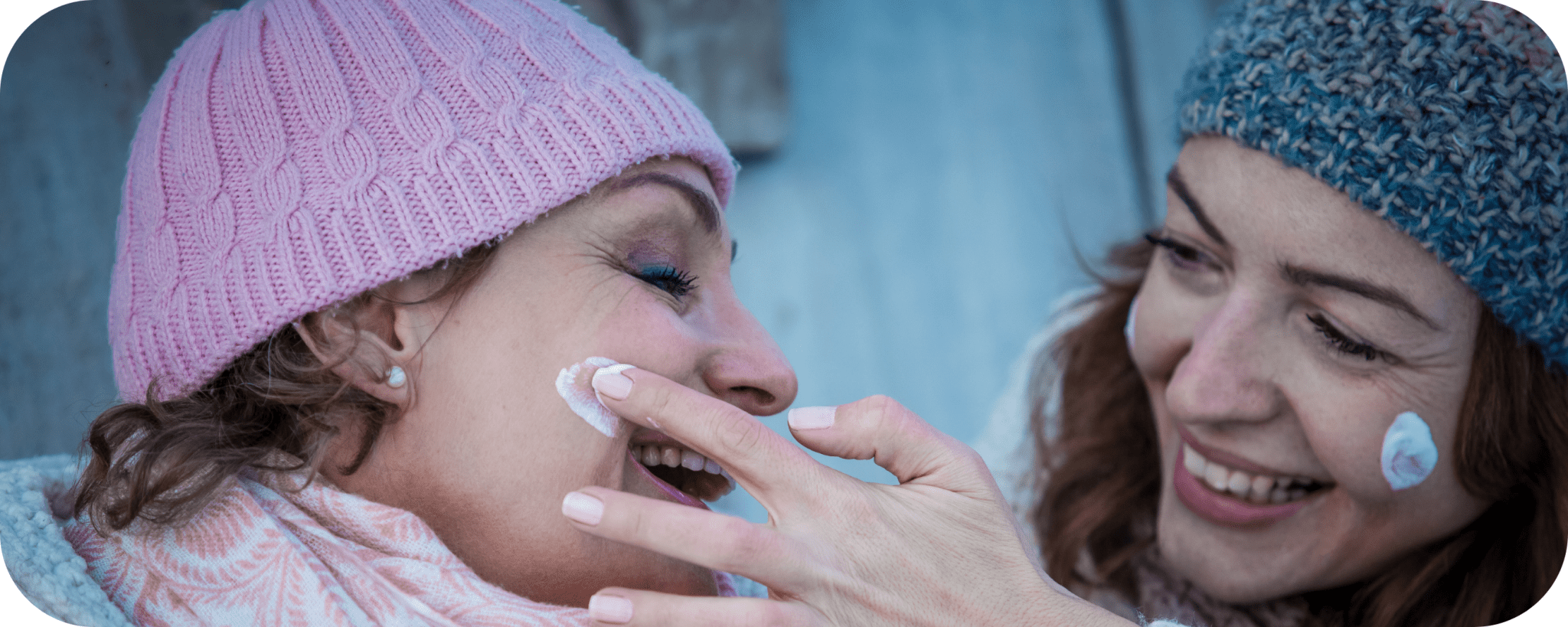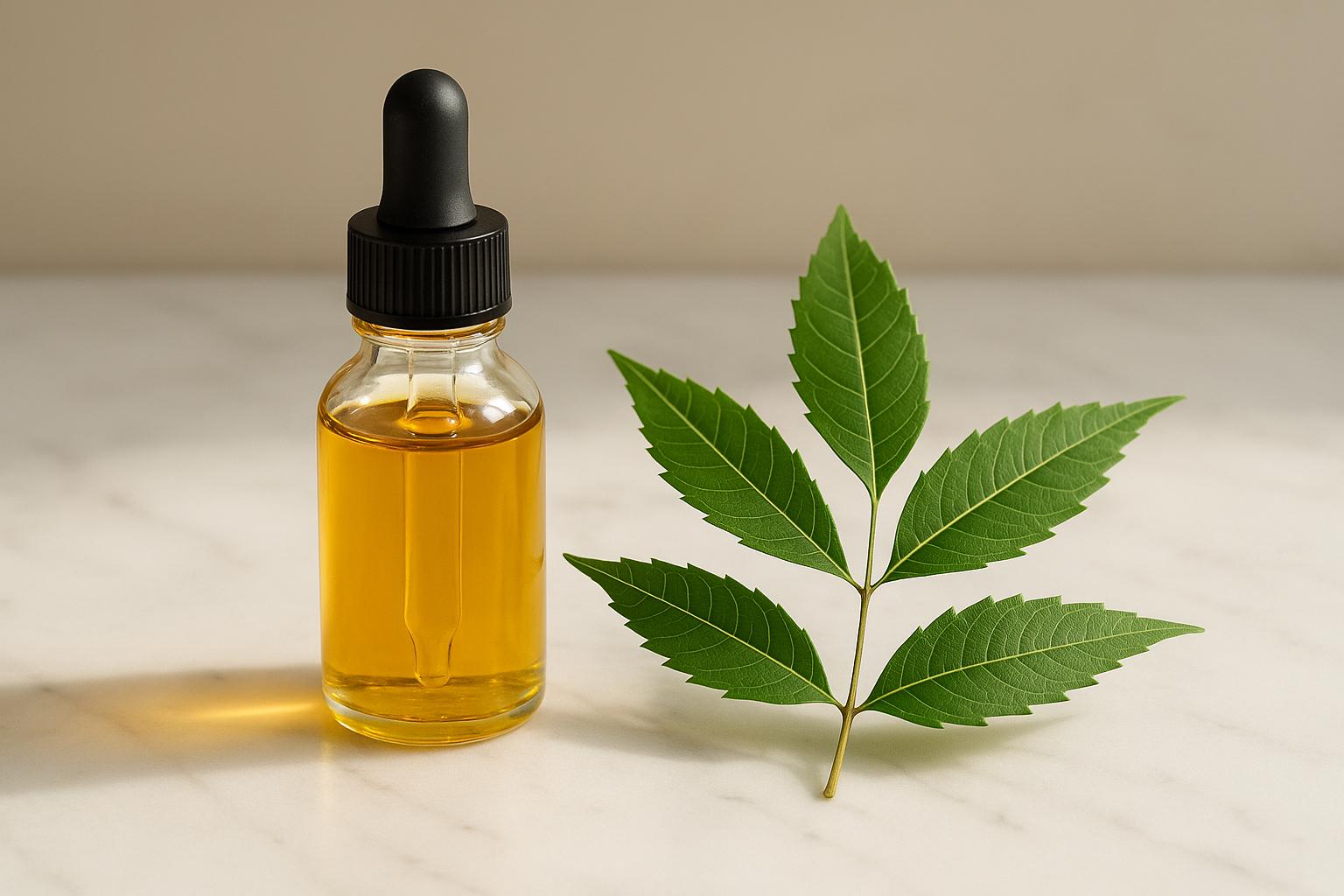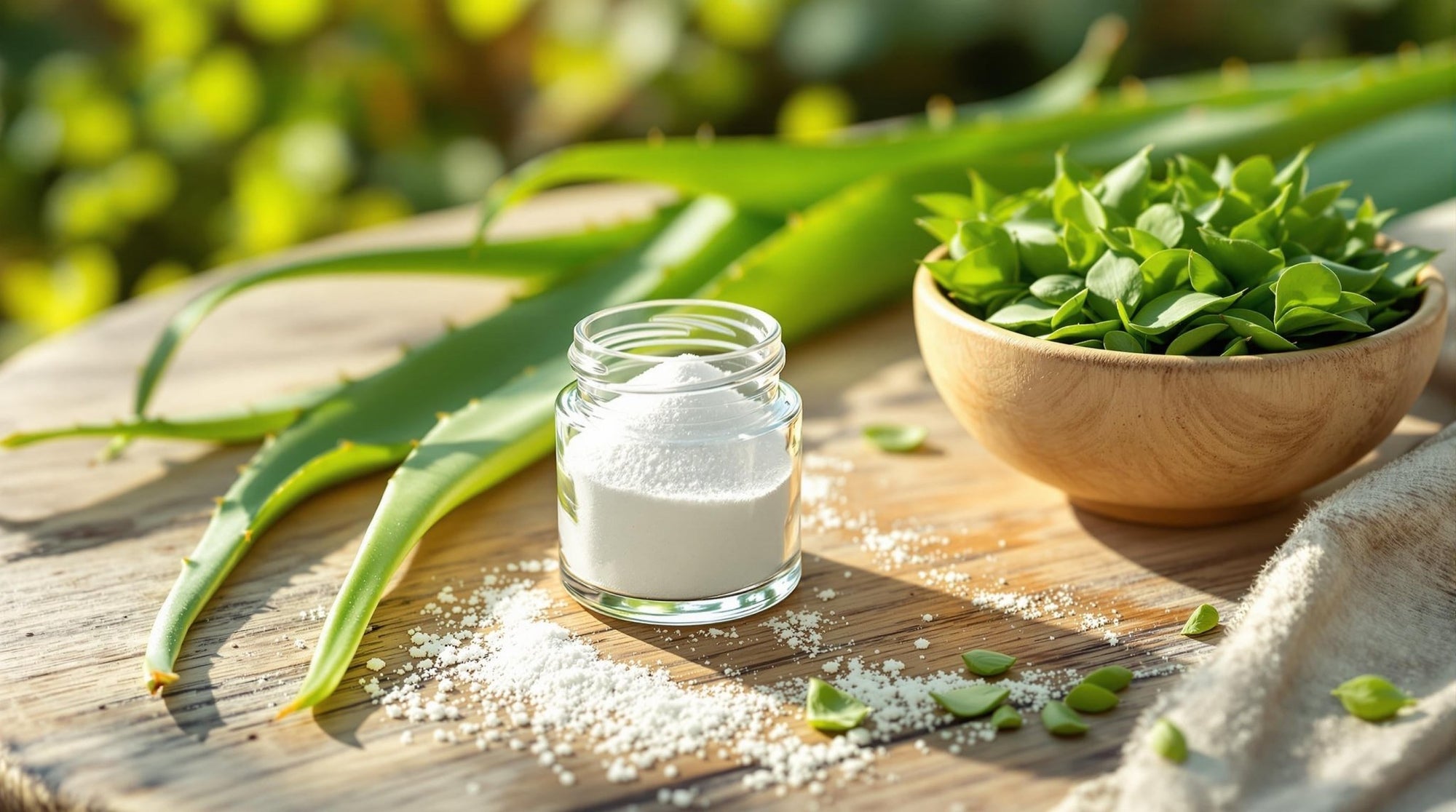Psoriasis in winter - how the cold season affects your skin & how you can protect it

Winter represents a certain challenge, especially for those affected by psoriasis. Low temperatures, dry heated air and less exercise in the fresh air have a negative effect on sensitive skin. Many people notice an increase in their psoriasis symptoms such as redness, flaking and itching, especially in the cold season.
In this article we will show you how you can pamper and moisturize your skin even in winter with simple tips.
Why does the skin react so sensitively in winter?

A crucial factor that can lead to skin sensitivity is increased dryness during the cold season. Heating air reduces the humidity indoors to below 30%. Your skin is therefore subject to higher water loss. The natural ceramide level on the surface of the skin can also be more easily disrupted in winter. Ceramides are important components of the stratum corneum and keep the skin elastic and well moisturized. If there is a lack of moisture, dandruff and redness can increase.
In addition, many psoriasis patients react more sensitively to low temperatures. In the cold, the blood vessels beneath the surface of the skin contract, resulting in reduced blood flow. As a result, your skin is less supplied with important nutrients such as vitamins and minerals. Due to the lack of these nutrients, the skin barrier is weakened and more susceptible to inflammation. The metabolism also often slows down a bit in the winter.
Another burden is the shorter days. By influencing hormone balance and vitamin D production, sunlight promotes wound healing and regulates inflammation. In winter, this supporting effect is somewhat neglected due to shorter days and less sunlight.
Infections, which generally occur more frequently in the cold season, can also have a negative impact on the skin and its health. Viruses and bacteria that cause colds and flu infections also attack the immune system and our skin barrier. These pathogens usually do not reach deeper layers of the skin because the skin's natural protective barrier repels them. However, with a weakened immune system and a reduced skin barrier due to a lack of nutrients, this defense function is impaired.
This way you can adequately protect your skin even in winter
Luckily, there are some very simple tips and tricks you can use to support your skin even in winter. A suitable care routine will also help you moisturize your skin.
Protect your skin barrier

The skin barrier plays a crucial role in controlling psoriasis symptoms. Psoriasis involves an overactive proliferation of skin cells. Normally, the skin barrier regulates this cell division process. However, if it is weakened by deficiency symptoms or inflammation, this cell division cannot take place regularly. The excess skin cells cannot peel off in time and calluse the surface of the skin. Typical psoriasis symptoms such as red, scaly patches can result.
In winter, however, the skin barrier is often stressed by the cold air and dry heating air. Therefore, it is important to protect and strengthen the skin barrier.
Use mild, fragrance-free cleansers to avoid putting additional strain on the skin. An important component of the skin barrier is the lipid layer in the epidermis, which consists of ceramides, cholesterol and fatty acids and which acts like a barrier to protect against the penetration of pathogens. Regular use of rich creams helps to supply the skin with important lipids and strengthen the barrier.
Moisture is key

In winter the air is often very dry, which can lead to the skin drying out quickly. Psoriasis sufferers should therefore pay particular attention to providing their skin with sufficient moisture. Use rich, moisturizing creams or ointments specifically designed for dry and sensitive skin. Apply generously to affected areas to keep skin supple.
Look for the right moisturizing ingredients like glycerin , soothing ingredients like sweet almond oil , and anti-inflammatory ingredients like aloe vera and panthenol . Our psoriasis cream includes all of these important and valuable ingredients. We have also refined our cream with snow leaf extract , which we produce ourselves. This neem leaf extract is rich in nimbolides and shows antioxidant and anti-inflammatory properties, which have been dermatologically confirmed .
Additionally, use a moisturizing face mask once or twice a week. Dry heating air causes the surface of the skin to crack, which increases the risk of eczema and fungal infections. You can counteract this danger with regular face masks.
In addition to actually caring for your skin, you should also pay attention to the humidity in your home; if necessary, a humidifier can help here.
Don't forget sun protection even in winter

Don't forget sun protection in your daily care! Even if the sun shines less intensely in winter, it is important not to neglect sunscreen. UV rays can worsen the skin's appearance and promote inflammation. Therefore, use a sunscreen with a high sun protection factor even in winter, especially on areas of the skin that are not covered by clothing.
How do I eat properly in winter?

A balanced diet with plenty of fresh fruit and vegetables provides your skin with important vitamins, minerals and phytochemicals. These support the skin's natural defense mechanisms. Pay particular attention to getting enough vitamin D , which is produced through sun exposure. In winter it is advisable to replenish this with nutritional supplements.
Omega-3 fatty acids from linseed oil or chia seeds also help sensitive winter skin. Omega-3 fatty acids are among the important components of the lipid layer in the skin. In cold weather, the skin barrier is often stressed and the lipid layer is not optimally developed. The lipid layer can be strengthened by consuming omega-3 fatty acids through food. Flaxseed oil and chia seeds are also particularly rich in fatty acids and provide the skin with valuable omega-3 fatty acids such as ALA and DHA . This supports the skin's natural barrier structure and makes it less susceptible to external influences in the winter.
Exercise in the fresh air

Even if it's cold outside, exercise in the fresh air is important to stimulate blood circulation and promote blood circulation in the skin. This strengthens their defenses and regenerative abilities. Go for a brisk walk or bike ride for half an hour every day. The movement warms up your body from the inside and allows your skin to breathe better.
But don't forget to dress appropriately on your winter walk! Ideally, wear cotton gloves to protect your hands from cold and dryness. To counteract dry nails, regularly use a rich nail cream or nail balm . Because your nails and cuticles also need additional care at low temperatures.
Thanks to the valuable ingredients in our nail balm, such as sunflower oil , jojoba oil and macadamia oil , inflammation can be relieved, the skin moisturized and protected against free radicals . In addition, the vitamins , minerals and fatty acids it contains provide extensive protection against dehydration and regulation of sebum production, while the lipids it contains can strengthen your skin barrier .
light therapy

For some people, a light therapy device is a useful support in winter. These devices simulate daylight and have a positive influence on vitamin D levels, mood and skin condition. However, please consult your doctor or alternative practitioner in advance regarding possible light therapy .
Warm baths and showers – with moderation and care

It may be tempting to warm up in a hot bath, especially in the freezing winter, but water that is too hot can further dry out the skin. Lukewarm baths with special bath additives that nourish and soothe the skin are ideal.
Avoid harsh soaps and instead use gentle, fragrance-free products such as mild, moisturizing shampoos and conditioners to soothe the scalp and reduce dandruff. Massage the shampoo very lightly into the scalp and rinse thoroughly.
You can also pamper the sensitive skin on your head with a psoriasis scalp oil . This provides moisture and contains relevant active ingredients such as bisabolol , which has a skin-soothing effect, moisturizing aloe vera and panthenol , which not only provides moisture but can also have an antibacterial effect.
Conclusion: This is how you can provide your skin with sufficient moisture even in winter
Winter psoriasis care covers the entire body, including the scalp, nails, and cuticles. By targeting the needs of these areas, you can help relieve symptoms and improve overall skin health. Protect your skin barrier with the right moisturizing and anti-inflammatory products and also use sunscreen in winter. In addition, you can pay attention to a balanced diet rich in vitamins and enough exercise in the fresh air to support your body and your skin.



